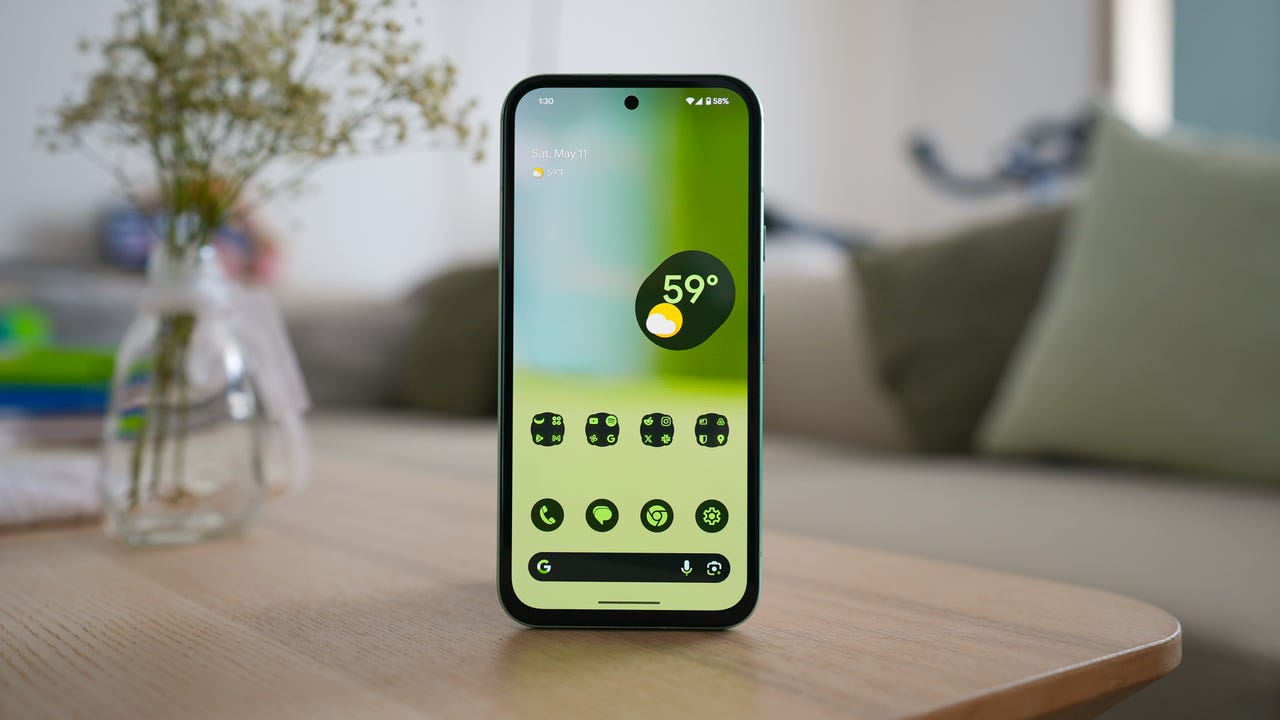Android 15 unveiled: Here are 8 exciting (or handy) features coming to your phone

Google went on a rampage in Mountain View, California, announcing a bazillion and one advancements in AI, changes coming to its products and services, and -- of course -- more about Android 15. The new version of the most-used mobile operating system will arrive later this year, and during the company's I/O developer conference, we got a better understanding of what this new version will be capable of.
Also: 9 biggest announcements at Google I/O 2024: Gemini, Search, Project Astra, and more
The short answer? A lot, but nothing that will make Android unrecognizable. Google is continuing to build on top of Material You and the matured Android platform, while also helping it adapt to new form factors like foldables. It's also taken a staunchly privacy-focused approach, likely to better compete with all the privacy features in Apple's iOS.
On top of a bunch of new AI features powered by Gemini, as well as the features already discovered in early betas of the system, here are eight new features Google just confirmed are on their way with Android 15.
1. Private Space
Android phones have had features that let you lock certain apps behind your fingerprint or passcode for some time, but now, Google is building this capability directly into Android through Private Space.
Also: The best Android phones to buy in 2024
The feature lets you lock away any apps you don't want prying eyes to see or use, like banking or health apps. It'll then isolate the data and notifications from those apps so that they remain truly hidden, and you can even hide the existence of your Private Space altogether. The feature uses your fingerprint for security, but you can always set up a custom lock if you'd like to make it extra difficult to crack.
Obviously, third-party companies will integrate Private Space in a variety of ways, but the groundwork for the feature will now be rooted in Android 15.
2. A better experience on bigger screens
Android 15 should make it easier for developers to adapt their apps for larger displays found on tablets and foldables, all thanks to new Compose AI adaptive layout libraries.
By using Compose, Google says developers will have an easier time ensuring their apps' UI adapts well across window sizes, screens, orientations, and more. The API provides composables that make it easier for UI elements to adapt to the display they're on, not simply stretch or shrink depending on how big the screen is. The API makes it easier to hide certain elements, reorient things, use pane extensions for hiding or showing certain parts of an app, and more.
Also: This subtle (but useful) AI feature was my favorite Google I/O 2024 announcement
Google is also improving the stylus experience in Android 15 with new developer-focused tools to ensure latency remains low across third-party apps. Writing with your stylus while maneuvering the screen with your other hand should also work better.
In addition, the company is ensuring that developers have the tools they need to make using a keyboard and mouse more user-friendly when in third-party apps, as well as ensuring that games adapt nicely to whatever size screen they're on. This is a huge pain point for foldable phone users since it's tricky for apps to know how to stretch their content, so hopefully, these under-the-hood changes will improve things.
3. More 'stuff' in your Google Wallet
You know how you have a ton of "stuff" in your physical wallet, like membership cards and tickets? Now, you can digitize it all and add it to your Google Wallet. The company is adding the option to add a digital version of any pass that contains text, so you can load your gym membership card, your library card, a ticket to your favorite band, and more right onto your phone.
Also: 5 reasons why I switched to a digital wallet, and you should too
4. Thieves will have a tougher time stealing your phone
One of the coolest features that involves Google's AI chops is called Theft Detection Lock. If your Android smartphone detects that someone has stolen it and tries to run, bike, or drive away, your phone senses that motion and should immediately lock the screen. It'll also automatically lock if it detects suspicious activity, like constant attempts to disconnect your phone or various failed log-in attempts.
While Theft Detection Lock will be available on phones dating back to Android 10, factory reset protection remains exclusive to Android 15. If a thief tries to reset your stolen phone, the newer feature prevents them from setting it up again unless they have your Google account credentials. It's basically Apple's Find My iPhone feature, which locks down iPhones when they're reset. This renders your Android phone useless to anyone who doesn't have your Google account log-in information, which may help discourage theft.
5. More secure phone calls
Android 15 is also designed to combat spammers who use cell-site simulators and fraud text messages to scam you by adding notifications when your cellular network connection is unencrypted. This will come in handy if you're being specifically targeted by criminals who want to intercept your cell signal.
Also: How to sign up for Google Labs - and 5 reasons why you should
Google is also adding Identifier Disclosure Transparency, which can help at-risk users like journalists know when their phone is being tapped through a false cellular base station or surveillance tool. Both of these features will require OEMs to support them, but Google says it anticipates that a lot of phone manufacturers will want to.
6. Slight performance bumps
On the developer side, Android 15 will support devices that use larger 16KB pages, which in turn will result in some performance improvements. This should make app launch times snappier, improve power efficiency, let you open your camera app faster, and turn on your phone quicker. Of course, this all depends on which phone you have and its specs, but it's nice to see Google focusing on speed improvements nonetheless.
7. AR in Google Maps
Soon, Google Maps will get the ability to display AR content on your phone, which will help you learn more about the places you visit. It's still early stages, but Google says that AR experiences built for places in Singapore and Paris are on their way first.
The feature is an extension of the extended reality (XR) platform Google is building with Qualcomm for the Android ecosystem, so expect the whole AR thing in Maps to ramp up over time.
8. Integration with third-party trackers in Find My Device
Google is upgrading Find My Device with the ability to keep tabs on tracker tags from companies like Chipolo and Pebblebee. This means you'll be able to find your phone, earbuds, luggage, backpack, and more all from a single place, similar to Apple's Find My network on its platforms.
Also: iOS and Android owners will now be alerted if an unknown tracker is moving with them
In addition, other tags from Eufy, Jio, and Motorola will be supported later this year.
When does Android 15 come out?
Google says Android 15 will reach platform stability in June or July, with the public release coming some time afterward. Android 14 didn't come out until August 2023, so it seems safe to assume that Android 15's timing will be similar: August 2024.
There's plenty more to unpack from I/O 2024, so be sure to stay tuned to ZDNET for more coverage.
